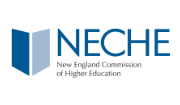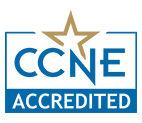
Master of Science in Nursing: Nurse Educator
Make a Difference as a Nurse Educator
Nurse educators are the key to building a passionate, expertly trained, and fully staffed healthcare environment. In 2018, U.S. universities and colleges rejected over 80,000 qualified applicants for bachelor's and graduate degrees citing a lack of faculty, classroom space, and clinical opportunities in hospitals.* This means greater numbers of nurse educators are key to solving today's healthcare staffing issues.
That's why the Norwich online Master of Science in Nursing (MSN) program was designed to meet this critical demand. Our program aims to help you build the essential skills needed to educate the next generation of phenomenal nurses.
Graduates of the MSN Nurse Practitioner tracks are provided education and experience for eligibility and successful completion of national Nurse Practitioner certification examinations. The program additionally prepares graduates from the specialty tracks, Nursing Education, and Healthcare Systems Leadership for advanced nursing roles in their respective areas of study. Graduates from MSN Nursing Education and Healthcare Systems Leadership tracks are eligible for certification exams although are encouraged to take additional preparation, such as a certification preparation course, before pursuing certification.
To learn more, request information and to apply, please visit
health.norwich.edu
Accreditation & Recognition

Norwich University is accredited by the New England Commission of Higher Education (formerly the Commission on Institutions of Higher Education of the New England Association of Schools and Colleges, Inc.).

The baccalaureate degree program in nursing at Norwich University is accredited by the Commission on Collegiate Nursing Education (https://www.aacnnursing.org/CCNE-Accreditation).
The master's degree program in nursing at Norwich University is accredited by the Commission on Collegiate Nursing Education (https://www.aacnnursing.org/CCNE-Accreditation).
The post-graduate APRN certificate program at Norwich University is accredited by the Commission on Collegiate Nursing Education (https://www.aacnnursing.org/CCNE-Accreditation).
